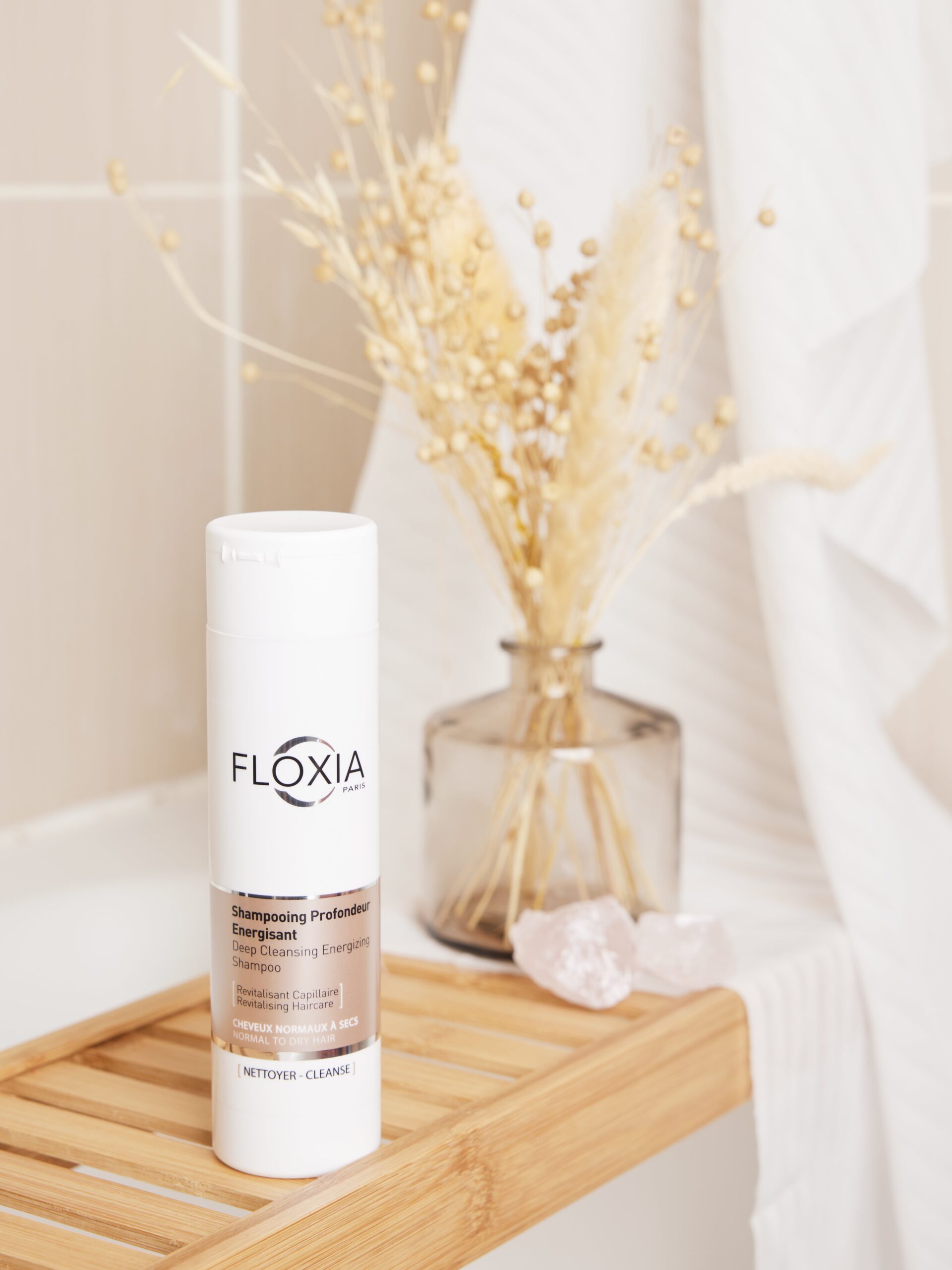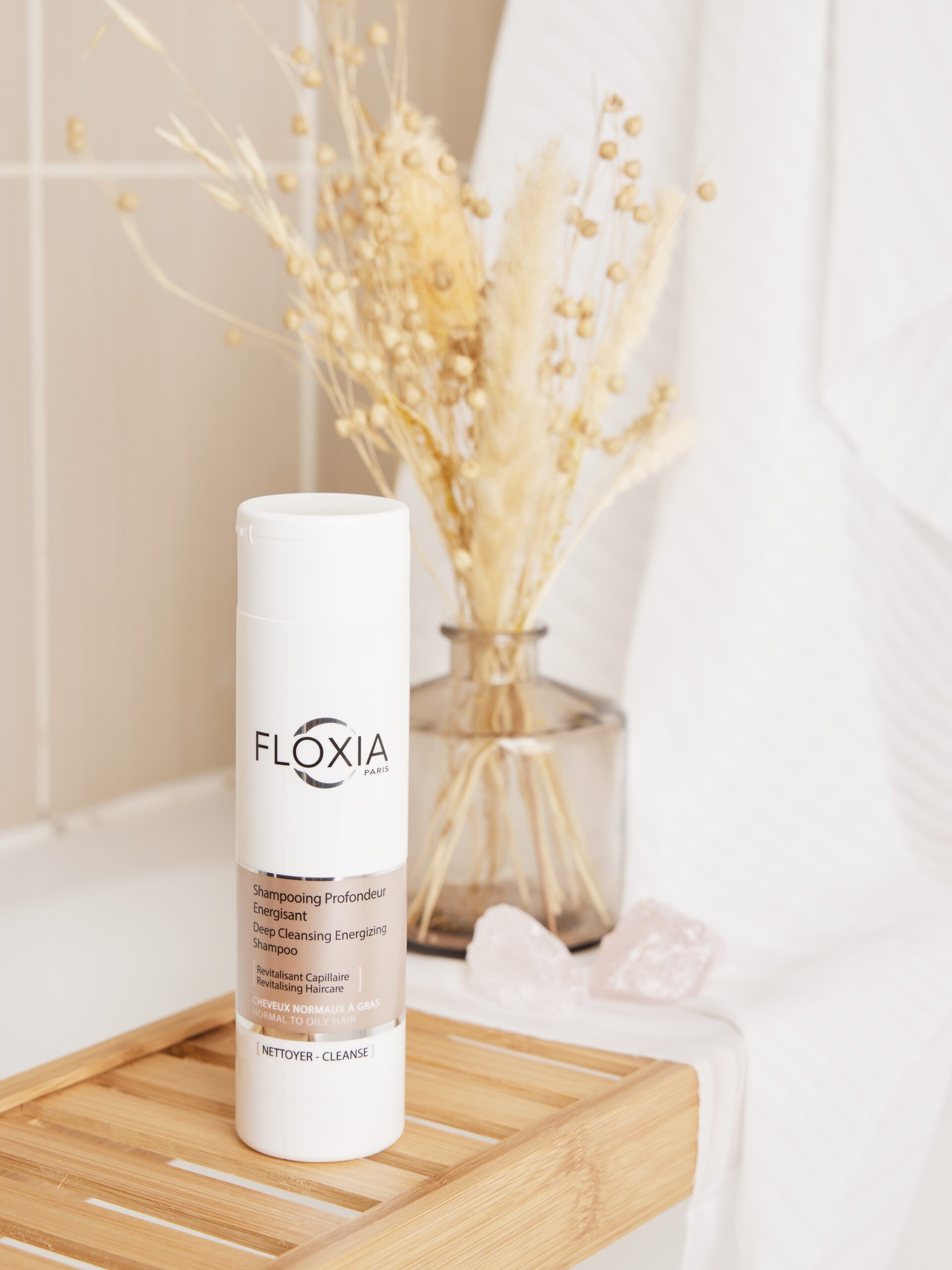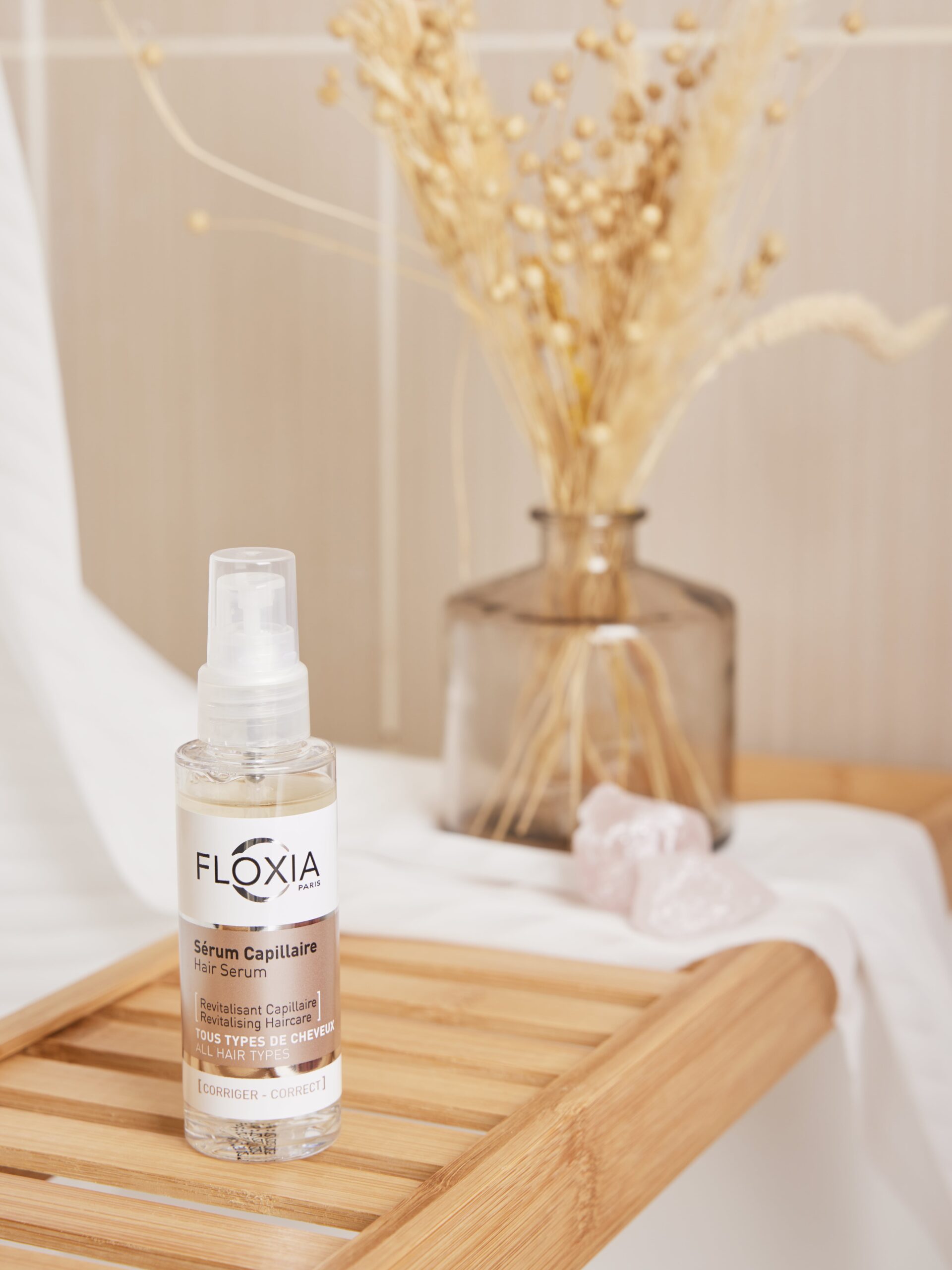Postpartum hair loss caused by hormones
Postpartum hair loss is common. After pregnancy, you experience a host of hormonal changes. These upheavals can cause hair loss that, fortunately, rebalances over time.
Hair loss can nevertheless be impressive, and frightening. If you notice a loss of hair density, with more and more hair on the brush or at the time of styling and washing, a thinning scalp with the appearance of the skull, then you may experience postpartum alopecia.
Fortunately, hair loss after pregnancy can be stopped. Thanks to adapted hair care, you can limit hair loss, slow it down or even stop it. Shampoos, hair serums, but also food supplements can help you find beautiful hair.
Telogen effluvium after pregnancy
Telogen effluvium is a disorder of the hair cycle. It results in hair loss that is not localized. It usually occurs after intense stress, childbirth, miscarriage or abortion (abortion).
This hormonal disorder that causes hair loss stops in two to four months. If it continues, you should contact a health professional such as your midwife, gynecologist or endocrinologist, or even a dermatologist to identify other causes of disruption and hair loss.
Hormones in pregnant women and their impacts on hair
Several factors contribute to postpartum hair loss. One of the main factors is the hormonal fluctuation that occurs during pregnancy and after childbirth.
During pregnancy, hormones play a key role in keeping hair in the growth phase. This often explains why pregnant women have thick, shiny hair, especially thanks to high levels of estrogen, female hormones.
However, after childbirth, these hormones return to normal levels, which can lead to hair loss. We talk about hormonal fall, because estrogens, progesterone and thyroid hormones suddenly drop after childbirth.
Stress is another factor that can contribute to postpartum hair loss. New responsibilities related to motherhood, lack of sleep and hormonal changes can be major sources of stress for new moms and impact hair.
The duration of hair loss post pregnancy

Preventing postpartum hair loss
Although postpartum hair loss is often unavoidable due to natural hormonal fluctuations, there are measures you can put in place to reduce its impact.
Here are some tips to prevent postpartum hair loss:
- maintain a balanced diet, rich in vitamins and minerals, including zinc and iron, which contribute to dense and strong hair;
- manage stress, as high levels of cortisol can disrupt the hormonal cycle and increase hair loss;
- use products suitable for hair loss, and especially gentle hair care without aggressive chemicals;
- avoid colouring, chemical dyeing and heating devices such as hair straighteners, hair dryers…
- Gently brush your hair with a wide toothed comb or soft bristle brush.
- avoid tight hairstyles that pull on the roots whose bulb is fragile (a satin pillowcase can help you preserve the moisture of the hair, especially the ends and lengths).
Treating hair loss after childbirth
To treat postpartum hair loss, turn to healthy hair products adapted to hair loss. Use a mild shampoo, adapted to your needs and then accompany it with a conditioner to gently detangle your locks.
We also advise you to regularly apply hair masks to nourish and moisturize the hair in depth, from the root to the ends. Hair loss serums can also help you regain volume and erase the lightening of the scalp.
Use hair products to treat hair loss
These are hair loss products. They can help you repair hair fiber and accelerate hair growth. You can incorporate them into your hair routine.

The energizing deep shampoo for normal to dry hair to provide all the nutrition and hydration the hair needs. It prevents brittle hair and helps repair the hair follicle to promote hair growth.

Shampoo for normal to oily hair to regulate excess sebum and dandruff. An unbalanced scalp can become scaly and have oily and porous roots that slow regrowth. This shampoo for oily hair and perfectly adapted against postpartum hair loss and to prevent itching.

Hair loss serum specially designed to treat hair loss. It is compatible with postpartum hair loss. It consists of Procapil to boost hair growth, regenerate hair and take care of fine and fragile hair.

Hair supplements that promote hair growth and slow hair loss. They contain:
- B vitamins to combat sebum overproduction and hair dryness;
- nettle to revitalize the hair and provide a tonic effect;
- cystine to anchor hair and increase keratin synthesis, an essential protein for healthy hair;
- Methionine to stimulate hair growth
zinc to reduce oily hair, regulate sebum and keratin secretion; - silicon to fill up with trace elements and amino acids and benefit from a powerful antioxidant.
Products based on castor oil, real lavender essential oil, tea tree and brewer’s yeast can also help you grow hair. Also make a habit of massaging your scalp with a serum, fortifying vegetable oils or a lotion to stimulate blood circulation.
Use suitable cosmetic treatments, rich in nutrients and moisturizing agents. Apply to wet, damp or dry hair. You can also use leave-in treatments to protect your mane from external aggressions such as pollution and sun.
consult a dermatologist
A dermatologist or hair specialist can help you and assess the severity of hair loss. A health professional may also recommend an appropriate treatment plan with medication.
Taking a hormonal assessment via a blood test can also take stock of your hormonal health. This will help you know what adjustments to make in your body to boost hair growth and avoid deficiencies.
If alopecia after pregnancy is important, a tip is to cut your hair. A short cut by a hairdresser gives more volume at the roots and will mask the loss.
Be patient! Hair grows back. Give your body time to recover from the huge disruption of pregnancy.

